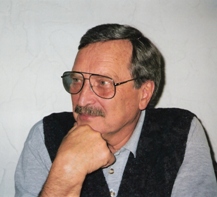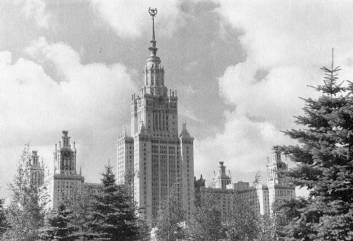Dr. Ezepchuk's Background

Dr. Ezepchuk graduated from the Biological Faculty of Moscow State University where he majored in microbiology. His first research project was the development of the anthrax spore-free vaccine. The results that were obtained in the study of the cultural conditions for biosyntheses and secretion of the protective antigen (PA) were further analyzed in his Ph.D. dissertation (1961). The Doctorate Diploma in Biological Sciences has been awarded for the research of incorporating the PA in the vaccine preparation and the study of the immune response under the effect of the vaccine (1968). In 1972, Dr. Ezepchuk completed a special preparatory course in the Dr. Harry Smith lab at the Birmingham University in Great Britain.
For many years Dr. Ezepchuk worked at the Russian Academy of Medical Sciences where he initiated a new research area in medical microbiology known as the phenomenon of bacterial pathogenicity. As a research scientist for the Gamaleya Institute of Epidemiology and Microbiology, he created the laboratory of molecular bases of pathogenicity in which study was carried out on the model of enzymes, toxins and antigens produced by different pathogens. Later in the 1990s, he continued his research at the National Jewish Medical and Research Center and in the Biomedical Center of the University of Colorado. Experiments and studies conducted examined the role of such factors of staphylococcal pathogenicity, as superantigenic toxins, and Protein A in dermonecrotic damages and Kawasaki syndrome.
In his monograph "Biomolecular bases of bacterial pathogenicity", which was published in the Academy Press in 1977, Dr. Ezepchuk explores the theoretical and experimental aspects of the problem, The book "Pathogenicity as a function of bio-molecules" published in 1986 added new information about bacterial adhesion, structure and function of some toxins as well as their ligand-receptor interaction with target cells. Dr. Ezepchuk also managed two national symposiums on bacterial toxins conducted in Moscow and Riga in the mid-1980s.
Dr. Ezepchuk has authored over 300 articles that were published in academic journals and popular magazines. In the book "One life on two continents" (2010), Dr. Ezepchuk was presenting the evolution of his scientific interests, his philosophy and social-political ideology. His book "Essay about Roses", featuring roses as his hobby, was published in Moscow in 2003.
________________________________________
 350.jpg)
________________________________________
Yurii V. Ezepchuk, PhD.
Denver, Colorado, U.S.A.
ezepchuk@usa.net
________________________________________

|